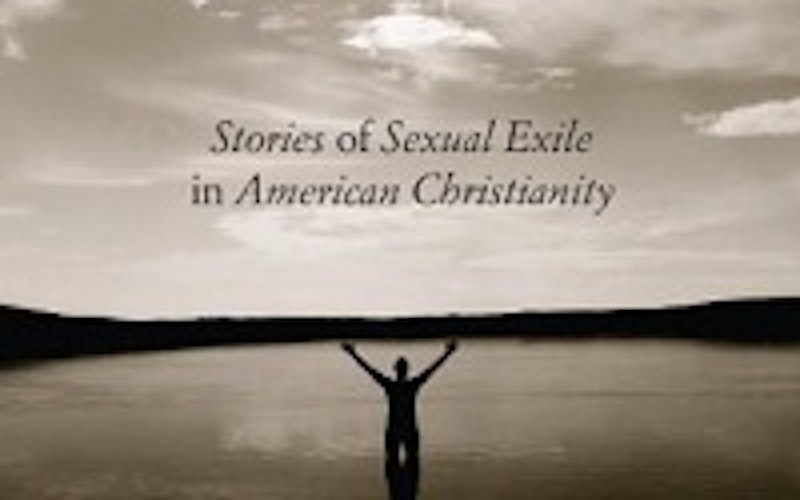
Culture At Large
Rules, purity and the wilderness of sexuality
Editor's note: This is excerpted from Amy Frykholm's new book,"See Me Naked: Stories of Sexual Exile in American Christianity."
Christians love to give each other advice on sexuality.
If you wander into any Christian bookstore or peruse Christian magazines, you’ll find lots of such advice. Likewise, the Internet is full of ministries dedicated to the subject of sexuality, all intended as guides.
On The Marriage Bed, an independent website that offers resources to married and engaged couples on the subject of sexuality, the authors try to answer that enduring question, “What is it right to do?” On a page called “Keeping Sexually Pure,” a couple named “Tom and Catherine” give us a good overview of a commonly Christian way through the wilderness of sexuality: make rules. Lots of rules. Keeping sexually pure means to maintain absolute control over one’s desires.
For unmarried couples, Tom and Catherine advocate layers of rules. First, there are the “ground rules” that a couple must establish at the beginning of their relationship. Then there are the additional rules that become necessary as a couple grows in intimacy. Finally, Catherine confesses, as if she were a rule junkie with a stash, there are her own private rules that she adds “on top of the set we already have.”
Tom and Catherine are like many Christians who imagine that Christian sex is not like secular sex, and that it is set apart by rules. Christian sex is safe and pure. Secular sex is dangerous and exploitative and leads on a path to destruction.
One extreme example of this logic is found in an almost harrowing moment of Alexandra Pelosi’s television documentary “Friends of God.” Pelosi stands with the soon-to-be former pastor of New Life Church in Colorado Springs, Ted Haggard, just weeks before the scandal broke. They are poised at the entrance to the church when Haggard says winkingly, “You know, all the studies say that evangelicals have better sex than anyone else.”
“Really?” Pelosi says from behind the camera.
Haggard gestures toward two young men from the church who are standing nearby. “How often do you have sex with your wives?” Haggard asks them.
“Every day,” one of them jumps in, as if he knows the script. “Sometimes twice a day.” Haggard looks at the other man. “Every day,” he says nervously.
“And out of a hundred times that you have sex with your wife, how often does she climax?” Haggard asks.
“Every one,” they say almost in unison. “Every one.”
Haggard grins, wide and toothy. One of the young men feels obligated to explain this unlikely reality. “There’s a natural order to things,” he says. “The way God set it up is the best way to do things and that’s the flat-out truth.”
While Christian mythology teaches that Christian sex protects us from heartache and plants us squarely in God’s order of things, the reality that most of us face is far different. Christianity does very little, if anything, to protect us from abuse, manipulation, objectification and betrayal.
This doesn’t mean that “the rules” don’t sometimes function properly and guide people onto solid ground. They certainly can. But they have become almost the only way that American Christians know how to talk about religion and sex. And these rules have left many people hungry to understand why they cannot place themselves on this map.
As I interviewed people about the relationship between their sexuality and their religious faith, almost no one I spoke to fit the ideal. All were broken, all had been hurt, all struggled to interpret their life experiences with very little help. All of these people were utterly ordinary. All of them spent time in the wilderness. Some of them are still there. Sexuality and spirituality have yet to find an integrated form in their lives.
At the same time, the Christian tradition offers us the image of the wilderness as an important place. While it is confusing, disorienting and frightening, it is also a place where God can be met. In our wanderings, tradition teaches us, God is present. Our experiences do not need to be read as a record of our failures to meet God’s standards, but as a record of the ways that God has tried to reach us. This can be true of the wilderness of sexuality too.
(Cover image courtesy of Beacon Press.)
Topics: Culture At Large, Arts & Leisure, Books, Theology & The Church, Faith, Home & Family, Sex, Marriage, Dating & Singleness